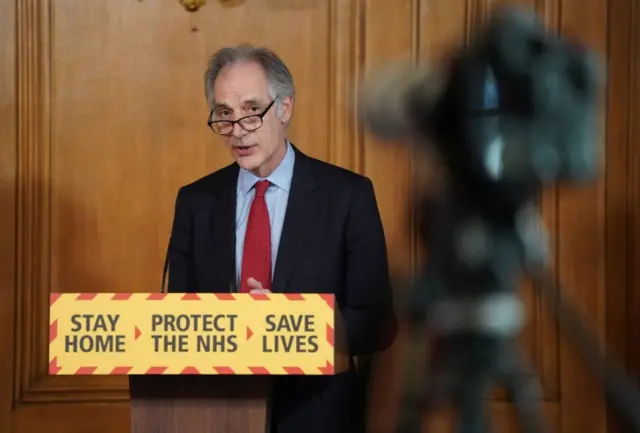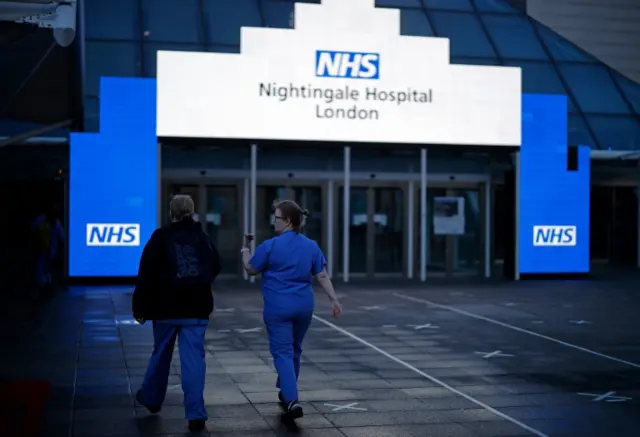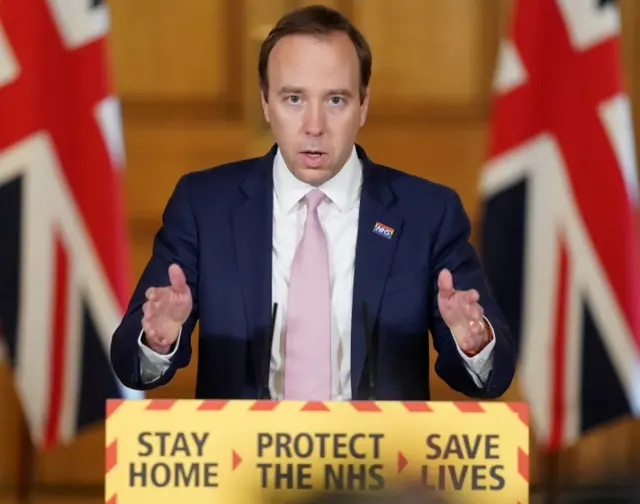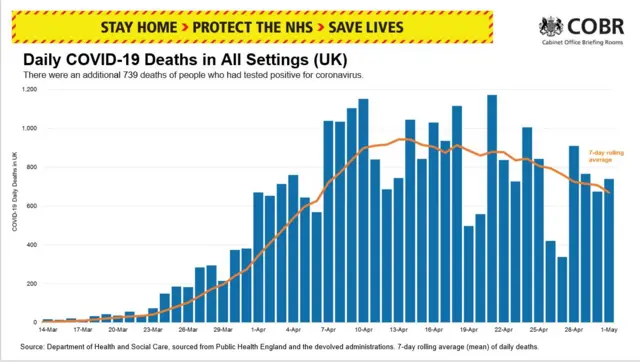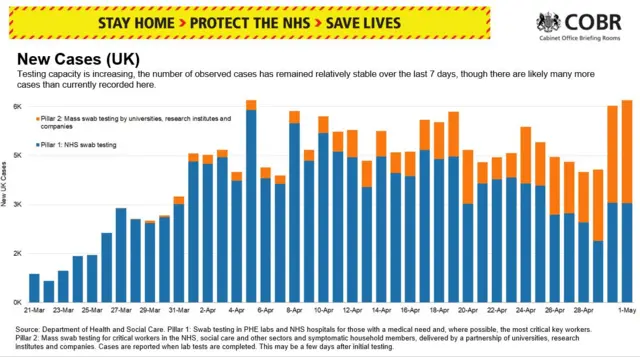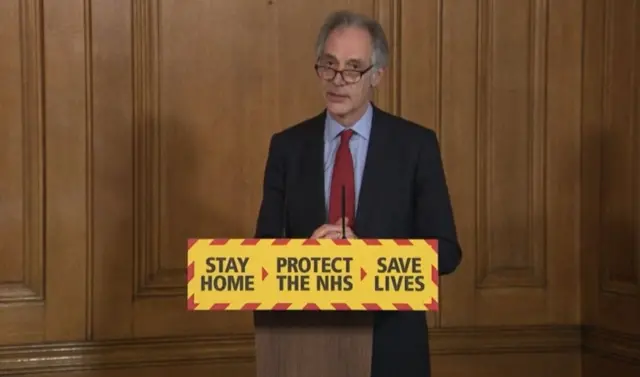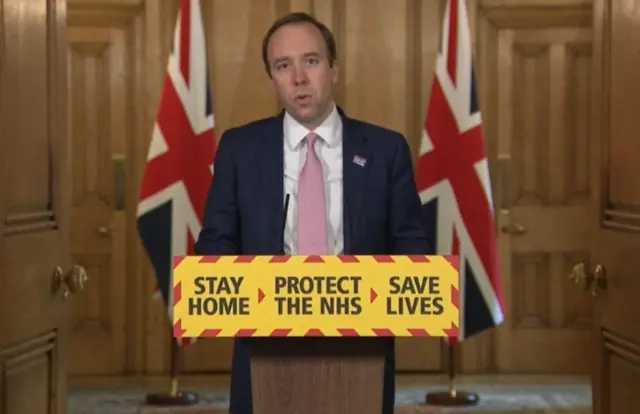Will over-70s face extended social distancing?published at 17:59 BST 1 May 2020
Sam Lister of the Express asks if over-70s who are fit and healthy will be treated the same as the rest of the population when the lockdown is eased.
Matt Hancock says there is a very specific group including those with underlying conditions "who we have been in contact with, who we are asking to shield to ensure they have as little contact as possible for their own health reasons".
NHS England Medical Director Stephen Powis says it is a reasonable question and will be a consideration when the measures are eased.

